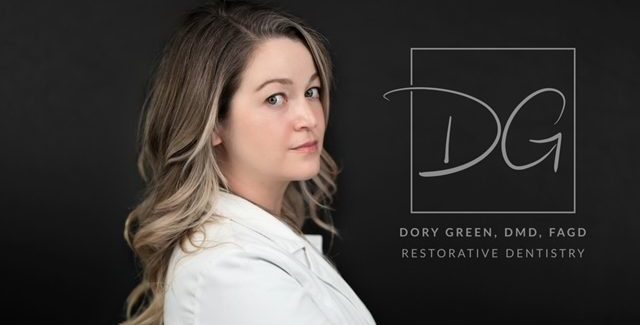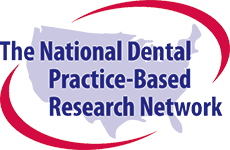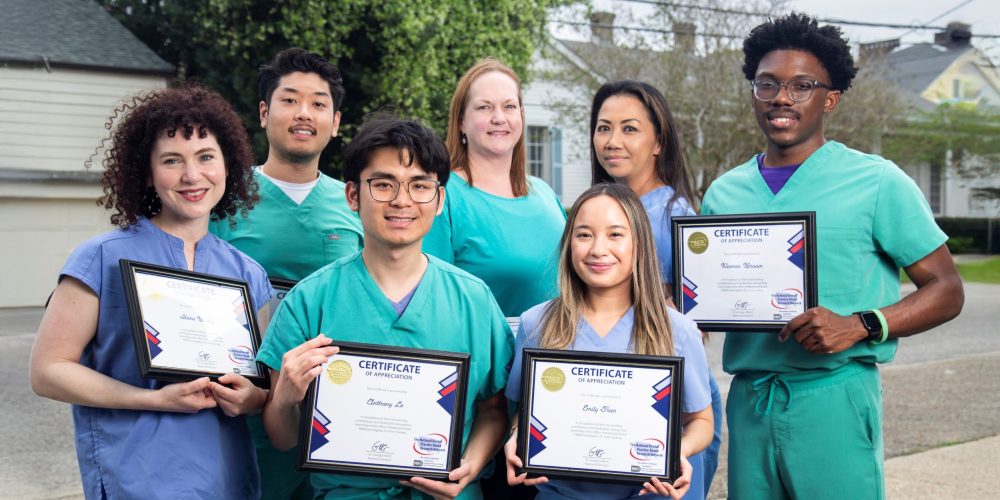Meet Dr. Nancy Rosenthal, a prominent member of the National Dental PBRN’s research team. Discover her experiences & thoughts about the network.
Understand why Dr. Dory Green joined the National Dental PBRN

In our ongoing effort to highlight the brilliant minds shaping the future of dental care, we’re excited to bring you an exclusive interview with Dory Green, DMD, FAGD. As a prominent researcher with the National Dental PBRN, Dr. Green has been at the forefront of several pivotal studies that aim to bridge the gap between dental research and clinical practice.
Get to know Dr. Green as we dive into her journey, uncover the inspirations behind her research, and discuss the significant impacts her work is having on the dental community.
Tell us a little bit about yourself. What’s your background and current position?
When I was at the University of Miami for undergrad, I was on a pre-med track, but I had always had a passion for technical theater. I have been doing special effects makeup and props fabrication since my sophomore year of high school and have been working in the theater on the UM campus since my first semester. Eventually, my advisor looked at the number of hours I was spending in the workshop and indicated that I may be wasting my time. I pushed back that it wasn’t a waste of time if it’s something I loved, so she suggested that since dentistry is a much more hands-on field, it may be a better fit for me. I shadowed a dentist my senior year, and I have been happily crafting smiles ever since!
I received my undergraduate degree in microbiology and technical theater from the University of Miami and then completed my doctorate at Temple University. I currently reside in Fort Lauderdale, FL, where I practice with a multi-specialty group, primarily focusing on surgeries and endodontics. Outside of work, I’m the Board of Trustees president for The Girl Choir of South Florida, where I still get to use my theater background.
What made you decide to join the National Dental PBRN?
After moving back to Florida in late 2012, I joined several local study groups and, through them, discovered the National Dental PBRN. I had always enjoyed research in dental school and residency, so this seemed like a great fit for me.
What research were you previously involved in before joining? How has National Dental PBRN helped you improve your skills?
After completing my residency, I would occasionally be involved with market research studies or product evaluations. I didn’t see a clear path for research outside of an academic setting until joining National Dental PBRN. I really love the kind of insight that research can give you that may not be available otherwise.
For instance, I was involved with a study regarding post-operative pain, where I was able to get very detailed feedback on my patients’ healing experience. Patients will rarely contact the office unless they feel something is going wrong, but their survey responses gave me a much more complete understanding of what they were feeling day-to-day.
This allowed me to manage their expectations accurately and led me to make some adjustments to my post-op recommendations and prescribing practices. Many of the procedures I perform are the scary parts of dentistry that patients dread seeing on their treatment plans. However, being able to remove some of the fear and give them a clear picture of what to expect helps to improve their trust in me and strengthen our relationship.
How do the studies help you gain further insight into the dental profession?
As much as I love learning about new ways to help my patients, it’s also great to find out what procedures or steps can be eliminated.
For example, there has been some evidence that certain kinds of screenings are returning too many false positives, which can lead to unnecessary invasive procedures. Knowing what kinds of testing have value and what the risk levels are for different populations can save patients a lot of discomfort. It’s also great to have independent information regarding the utility of different screening devices since nobody wants to waste money on tools that won’t be around long.
Having access to unbiased data from unaffiliated researchers helps practitioners make better choices without the influence of product reps pushing company-backed studies. This makes it easier to make the best choice for your practice without a salesman trying to sell you something.
What advice do you have for future researchers looking to join the network?
Go ahead and do it! There’s no pressure to participate in any studies or do more than you can handle. There is literally no downside. If you are Type A and you love to know everything, this is the place for you to do some interesting deep dives. If you aren’t, it’s easy to just absorb information passively. Whether you want to learn or participate, this is a great resource, and it costs nothing.
How has the organization expanded or enhanced your research capabilities?
Being regularly involved in research and gaining more familiarity with good study design really helps my ability to recognize flaws and biases in research more easily. Whether that’s something as obvious as a company-backed influence in data collection or recognizing errors in media reporting. I feel a lot more confident in my ability to think critically about the information I’m being given.
How difficult might your research have been without your membership?
Without access to National Dental PBRN, I don’t actually know how I would go about serious participation in research outside of an academic setting. If you aren’t planning to become university faculty, what do you do? Start working for a medical device company? Neither option seems ideal if you want to maintain a full-time clinical practice. This is a great platform for connecting practicing dentists with academics to gather real-world data.
Would you recommend membership to other researchers in the field?
Absolutely, yes! I love it. The biggest reason is it’s so easy to gain new information just by exposure. Without even making any extra effort or spending money, it’s easy to expand your knowledge base. Plus, maybe you’ll come across a whole new topic and develop some new areas of interest. It’s really cool if you’re, you know, a massive nerd.
Can you explain how resources and shared learning have impacted your day-to-day?
I have always tried to be careful about writing prescriptions, but there was a study a couple of years ago on prescribing practices. Just the process of participating and responding to the survey questions led me to really reflect on when and how I prescribe. Even before seeing the results, my involvement caused me to pause, step back, and re-evaluate where I am and where I thought I should be. Sometimes, just the experience of looking at your own practicing habits in a new light can be a good motivator for change.
Join the National Dental PBRN Today!
We appreciate Dr. Dory Green for sharing her insightful journey and the groundbreaking work she’s doing with the National Dental PBRN. If you’re driven by a passion for advancing oral health research and making meaningful contributions to the field, we invite you to join our network.
Be a part of a vibrant community dedicated to innovation, collaboration, and professional growth. Together, we can shape the future of dentistry and improve patient care. Join us today and take an active role in driving the future of oral health research.
Interested in Becoming a Member?



